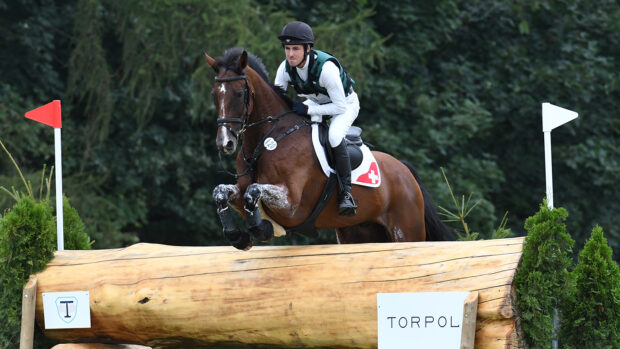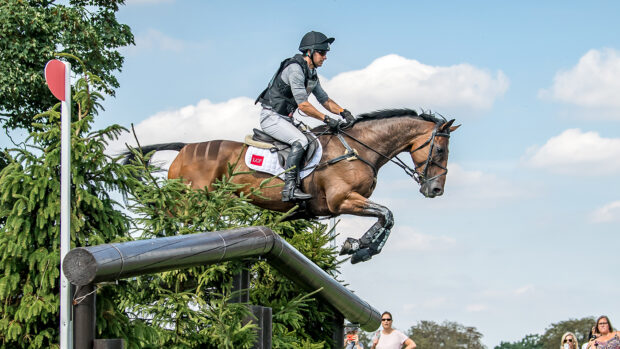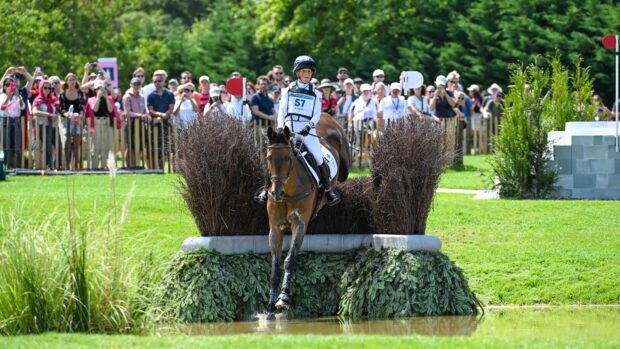The FEI Eventing Committee has devised a new set of protocols for 2005 after examining the breakdown in communications between riders and officials at this year’s Burghley International Horse Trials.
The committee examined the communications between the rider representative, the Ground Jury and the technical delegate at Burghley, and concluded that communications between the parties “was not satisfactory.”
As a result, the organising committee of every international event will now have to appoint a rider representative from among the competitors before the riders inspect the cross-country course. The rider representative will be responsible for communications between riders and officials, although individual riders will retain their right to speak to the Ground Jury, organising committee, course designer and technical delegate directly.
After the first horse inspection takes place, the rider representative may organise a meeting of all competitors to discuss any concerns they have about the event, which the technical delegate and a member of the organising committee will also attend.
If the event is a CCI with a standard timetable, the rider representative can call a second meeting after the first day’s dressage to discuss any potential issues relating to the cross-country course. The Ground Jury, the technical delegate, the course designer and a senior member of the organising committee must attend this meeting, during which both the riders’ concerns and the officials’ response will be recorded in writing. Riders may also appoint two people — who don’t necessarily need to be competing at the event — to continue the discussion with the show’s officials.
There is provision for a final riders’ meeting to take place on the evening before the cross-country test if necessary. If the riders are still unhappy with the Ground Jury’s decisions, they can vote to refer matters to an ad hoc committee, which the show organisers and the rider representative must appoint on the first day of the event. An absolute majority (50% plus one) of riders must vote for the ad hoc committee to step in.
The committee will consist of a non-competing rider with experience at the event’s level, an FEI-qualified technical delegate or course designer, and an independent third party who is knowledgeable about the sport, or people of similar qualifications. It will take a final decision on any outstanding issues, against which there will be no appeal.
At CIC or CCI events with only one day’s dressage, the procedure will be simplified to fit with the timetable, but the principles of recording riders’ concerns and official responses in writing, and giving competitors a chance to vote and refer problems to an independent body will be retained.
When contacted by Horse&Hound Online, British Eventing (BE) hadn’t yet had a chance to examine the new protocols and declined to comment. However, BE welcomed other provisions put forward by the FEI Eventing Committee, such as using a yellow flag to warn competitors who are riding recklessly that they may be disqualified.
“[The yellow flag] can help at the lower levels [of the sport] but at the higher levels the riders are professionals who know better than anyone else what’s going on with their horse and ride responsibly. At the end of the day the old yellow card system that was in place in the past was used very infrequently. But anything like this can only add to the safety aspect of the sport,” says BE spokeswoman Winnie Murphy.
The FEI Committee recommended a couple of other changes to the 2005 Eventing Rules, such as appointing a jumping judge to assist the Ground Jury in jumping tests at three-star and four-star competitions, and enforcing a number of new dressage tests. It also stated that the new CCI without steeplechase was “viable for the future” because it offered “new opportunities for the organisers, riders and horses,” and confirmed that all championships follow this format.
“In the UK, a lot of our events still run the steeplechase, but not a single event on the Continent has it,” says Murphy. “Personally, I think there is a place for both formats — it’s just a different way of testing horses. We proved in Athens that [the short format] is not a hindrance for the British team.”
The FEI Eventing Committee has also committed to reviewing the number of riders taking part in and qualifying for four-star events by 1 February 2005 before considering adding any CCI**** to the 2005 calendar.



